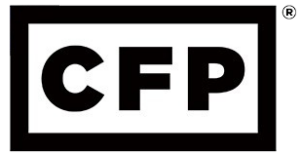This year I had many families and small business owners asking for CPA recommendations. Surprisingly, the recent tax code changes that were meant to simplify filing seemed to put many do-it-yourselfers over the edge.
What also sends people racing to the CPA is finding out that most tax softwares advertised as “free” aren’t free at all. Maybe the most simplistic 1040 federal return can be filed for free, but once you begin a state filing, need to schedule income, or opt for any convenience features – the bill adds up. At a certain point the marginal savings of being a do-it-yourselfer isn’t worth the stress of making errors.
For those with simplistic returns, such as the 1040 or 1040A, “storefront” tax preparers, including those working for regional or national chains, may be your best bet. They’re generally fast and inexpensive. Remember, however, these tax preparers may be of little help during an IRS audit. Read more on what to do in the event the IRS comes calling.
If you are self-employed, have certain kinds of liens, or are withdrawing from a retirement plan, consider “enrolled agents.” Such agents are tax consultants who have spent time working for the IRS or passed a special IRS test. They are required to continue their education to keep up with tax law changes. Remember, while consultants with an IRS background may be conservative on deductions, they tend to know what may trigger an IRS audit.
Enrolled agents generally charge more than tax preparers do, but less than certified public accountants (CPAs). CPAs must meet strict educational and professional standards and may be appropriate if your tax filing will be very complicated.
certified public accountants (CPAs). CPAs must meet strict educational and professional standards and may be appropriate if your tax filing will be very complicated.
Enrolled agents, CPAs, and attorneys are the only people who can represent you before the IRS if you are audited.
How do you choose the tax consultant who is best for you? Try to get an initial free consultation–and do it early in or well after the tax season. During the 1st quarter of the year, the best consultants often have four- or five-week backlogs even for paying clients.
During the consultation, ask plenty of questions.
- Find out how aggressive the consultant is about deductions if you’re itemizing
- How fees are calculated
- Whether the person you speak with will actually prepare your return or pass it on to an assistant
- If they offer audit protection (included or at an additional cost)
Finally, once the professional has completed your return, review each line carefully to avoid any possible errors. This is especially critical in the first year





This Post Has 3 Comments
Pingback: Tax Deadlines Extended until July 15! - North Andover Financial Planner | Powwow, LLC
Pingback: Closing an estate of a Loved One: A Step-by-Step Guide - Powwow, LLC
Pingback: Understanding New and Ongoing FinCEN and BOI Reporting Requirements - Powwow, LLC